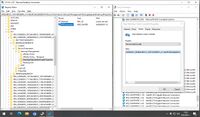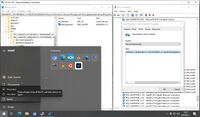QEMU/KVM and GPU Passthrough Troubleshooting: Difference between revisions
m →Linux |
m →Linux |
||
| Line 24: | Line 24: | ||
=== Linux === | === Linux === | ||
Linux guests usually enable MSI by themselves. To force use of MSI for GPU audio devices, use the following command and reboot. | Linux guests usually enable MSI by themselves. To force use of MSI for GPU audio devices, use the following command and reboot.<syntaxhighlight lang="shell" line="1"> | ||
echo "options snd-hda-intel enable_msi=1" | sudo tee /etc/modprobe.d/snd-hda-intel.conf | |||
{{Collapse/begin}} | </syntaxhighlight><syntaxhighlight lang="shell" line="1"> | ||
sudo update-initramfs -u -k all | |||
</syntaxhighlight>Use <code>lspci -vv</code> and check for the following line on your device to see if MSI is enabled.{{Collapse/begin}} | |||
<syntaxhighlight lang="shell" line="1"> | <syntaxhighlight lang="shell" line="1"> | ||
sudo lspci -nnv -s 09:00 | sudo lspci -nnv -s 09:00 | ||
| Line 65: | Line 67: | ||
Kernel modules: snd_hda_intel | Kernel modules: snd_hda_intel | ||
</syntaxhighlight> | </syntaxhighlight> | ||
{{collapse/end}} | {{collapse/end}}If it says <code>Enable+</code>, MSI is working, <code>Enable-</code> means it is supported but disabled, and if the line is missing, MSI is not supported by the PCIe hardware. | ||
This can potentially also improve performance for other passthrough devices, including GPUs, but that depends on the hardware being used. | |||
=== References === | === References === | ||
* [https://forums.unraid.net/topic/40593-windows-10-vm-losing-audio/?tab=comments#comment-398133 | * UNRAID Forums: [https://forums.unraid.net/topic/40593-windows-10-vm-losing-audio/?tab=comments#comment-398133 Windows 10 VM Losing Audio] | ||
* [https://forums.unraid.net/topic/44025-kernel-disabling-irq-16/page/2/ | * UNRAID Forums: [https://forums.unraid.net/topic/44025-kernel-disabling-irq-16/page/2/ Kernel Disabling IRQ #16] | ||
* [https://listman.redhat.com/archives/vfio-users/2017-May/msg00046.html | * RedHat ListMAN: [https://listman.redhat.com/archives/vfio-users/2017-May/msg00046.html Kernel panic at vfio_intx_handler leads to low performance in guest VM] | ||
* [http://vfio.blogspot.com/2014/08/vfiovga-faq.html | * Alex Williamson: [http://vfio.blogspot.com/2014/08/vfiovga-faq.html VFIO tips and tricks (at vifo.blogspot.com): Usefully Q&A] | ||
* [ | * Proxmox Wiki: [[pve:Pci_passthrough#HDMI_Audio_crackling.2Fbroken|'''Pci passthrough » HDMI Audio crackling/broken''']] | ||
== Hide the Warnings KVM: vcpu0 ignored rdmsr == | == Hide the Warnings KVM: vcpu0 ignored rdmsr == | ||
Revision as of 13:21, 2 September 2022
Guest GPU Audio Crackling and IRQ xx: Nobody Cared Fix
Windows
The solution of the issue Guest GPU HDMI Audio Crackling, Broken or Losing is well explained by Jonp at UNRAID Forums. In short we must try to enable the MSI – Message Signaled Interrupts option if the device support it. Here is a detailed step-by-step instruction how to do that.
I was mentioned the kernel command irqpool as solution for this issue, but in my opinion and according to some other posts, provided in the references section, this setting is an actual solution for the problem irq 44: nobody cared (try booting with the "irqpool" option); handlers: vfio_intx_handler; Disabling IRQ #44, that appears at my system when booting a VM with GPU passthrough with a display attached to it, which was causing host system reboot.
Linux
Linux guests usually enable MSI by themselves. To force use of MSI for GPU audio devices, use the following command and reboot.
echo "options snd-hda-intel enable_msi=1" | sudo tee /etc/modprobe.d/snd-hda-intel.conf
sudo update-initramfs -u -k all
Use lspci ‑vv and check for the following line on your device to see if MSI is enabled.
sudo lspci -nnv -s 09:00
09:00.0 VGA compatible controller [0300]: NVIDIA Corporation TU117GL [T600] [10de:1fb1] (rev a1) (prog-if 00 [VGA controller])
Subsystem: NVIDIA Corporation TU117GL [T600] [10de:1488]
Flags: bus master, fast devsel, latency 0, IRQ 103, IOMMU group 23
Memory at fb000000 (32-bit, non-prefetchable) [size=16M]
Memory at 7fd0000000 (64-bit, prefetchable) [size=256M]
Memory at 7fe0000000 (64-bit, prefetchable) [size=32M]
I/O ports at f000 [size=128]
Expansion ROM at fc000000 [virtual] [disabled] [size=512K]
Capabilities: [60] Power Management version 3
Capabilities: [68] MSI: Enable+ Count=1/1 Maskable- 64bit+
Capabilities: [78] Express Legacy Endpoint, MSI 00
Capabilities: [100] Virtual Channel
Capabilities: [250] Latency Tolerance Reporting
Capabilities: [258] L1 PM Substates
Capabilities: [128] Power Budgeting <?>
Capabilities: [420] Advanced Error Reporting
Capabilities: [600] Vendor Specific Information: ID=0001 Rev=1 Len=024 <?>
Capabilities: [900] Secondary PCI Express
Capabilities: [bb0] Physical Resizable BAR
Kernel driver in use: nvidia
Kernel modules: nouveau, nvidia_drm, nvidia
09:00.1 Audio device [0403]: NVIDIA Corporation Device [10de:10fa] (rev a1)
Subsystem: NVIDIA Corporation Device [10de:1488]
Flags: bus master, fast devsel, latency 0, IRQ 99, IOMMU group 23
Memory at fc080000 (32-bit, non-prefetchable) [size=16K]
Capabilities: [60] Power Management version 3
Capabilities: [68] MSI: Enable+ Count=1/1 Maskable- 64bit+
Capabilities: [78] Express Endpoint, MSI 00
Capabilities: [100] Advanced Error Reporting
Kernel driver in use: snd_hda_intel
Kernel modules: snd_hda_intel
If it says Enable+, MSI is working, Enable- means it is supported but disabled, and if the line is missing, MSI is not supported by the PCIe hardware.
This can potentially also improve performance for other passthrough devices, including GPUs, but that depends on the hardware being used.
References
- UNRAID Forums: Windows 10 VM Losing Audio
- UNRAID Forums: Kernel Disabling IRQ #16
- RedHat ListMAN: Kernel panic at vfio_intx_handler leads to low performance in guest VM
- Alex Williamson: VFIO tips and tricks (at vifo.blogspot.com): Usefully Q&A
- Proxmox Wiki: Pci passthrough » HDMI Audio crackling/broken
Hide the Warnings KVM: vcpu0 ignored rdmsr
sudo nano /etc/modprobe.d/kvm.conf
options kvm report_ignored_msrs=0 # Or: GRUB_CMDLINE_LINUX_DEFAULT="... kvm.report_ignored_msrs=0 ..."
sudo update-initramfs -u -k all
- Note, according to my experience, this option may cause crashes of the host system!?
References
- Proxmox: How to stop warnings "kvm: vcpu0 ignored rdmsr"
- ignore_msrs for host CPU being ignored
KVM Modeinfo
modinfo kvm
filename: /lib/modules/5.4.0-77-generic/kernel/arch/x86/kvm/kvm.ko
license: GPL
author: Qumranet
srcversion: 20C68083F39E14AB616D0B8
depends:
retpoline: Y
intree: Y
name: kvm
vermagic: 5.4.0-77-generic SMP mod_unload modversions
sig_id: PKCS#7
signer: Build time autogenerated kernel key
sig_key: 67:66:2F:F8:26:8F:56:E9:37:7F:B7:AD:33:FA:97:31:CA:7F:FF:50
sig_hashalgo: sha512
signature: 6C:0B:65:F9:46:AC:D8:B7:94:E8:B9:9D:A0:4B:97:E6:63:52:5A:FF:
...
parm: nx_huge_pages:bool
parm: nx_huge_pages_recovery_ratio:uint
parm: ignore_msrs:bool
parm: report_ignored_msrs:bool
parm: min_timer_period_us:uint
parm: kvmclock_periodic_sync:bool
parm: tsc_tolerance_ppm:uint
parm: lapic_timer_advance_ns:int
parm: vector_hashing:bool
parm: enable_vmware_backdoor:bool
parm: force_emulation_prefix:bool
parm: pi_inject_timer:bint
parm: halt_poll_ns:uint
parm: halt_poll_ns_grow:uint
parm: halt_poll_ns_grow_start:uint
parm: halt_poll_ns_shrink:uint
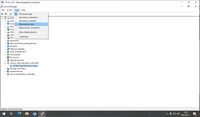
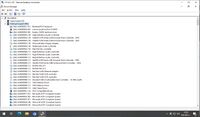
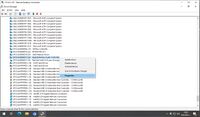
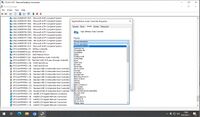
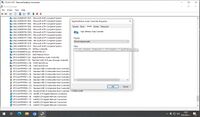
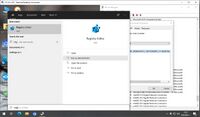
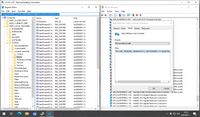
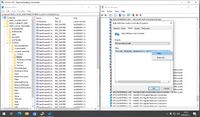
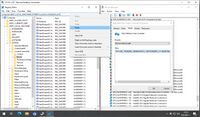
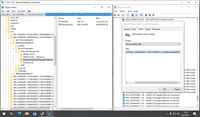
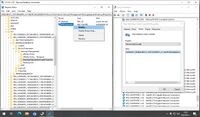
![QEMU KVM Windows Guest Fix NVIDIA NVS 315 HDMI Audio Step 12: Change the Value of the DWORD Key MSISupported to 1 [0x0..01].](/images/mlt/thumb/3/3c/Windows10_UEFI_CSM_on_QEMU_KVM_Fix_NVIDIA_NVS_315_HDMI_Audio_Crackling_Broken_Losing_12.jpg/200px-Windows10_UEFI_CSM_on_QEMU_KVM_Fix_NVIDIA_NVS_315_HDMI_Audio_Crackling_Broken_Losing_12.jpg)
